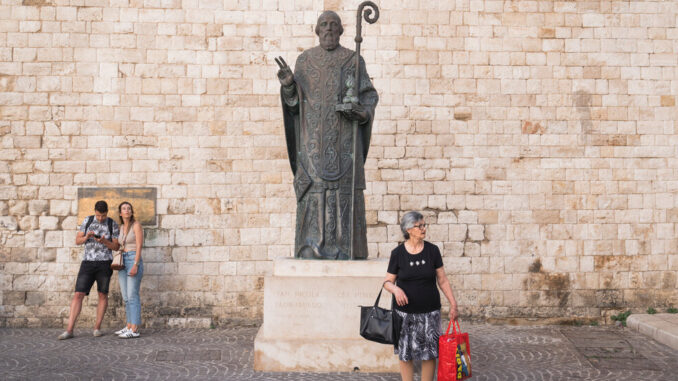
“The voice has become bigger,” Mr. Fortunato said.
Previous campaigns to have the plaque removed have failed. Shortly after Russia invaded Ukraine, about 12,000 people signed an online petition to have it taken down, but were rebuffed. Part of the problem is that it is not clear even to some local officials who is responsible for making that decision, although the basilica’s rector, Giovanni Distante, said the piazza where the plaque is mounted “falls under the direct responsibility” of the city government.
Bari’s mayor, Antonio Decaro, did not respond to multiple requests for comment. In 2022, he defended the plaque, saying, “I’m not in favor of canceling a piece of history,” local news media reported at the time.
In an interview, Father Distante tried to navigate the dispute by instead focusing on the history of “promoting and re-establishing Christian unity” that St. Nicholas espoused, and pointedly noted that it was the Russian Orthodox church in Kyiv, Ukraine’s capital, that in 1095 established the commemoration of the relics now housed in Bari. It was a subtle acknowledgment of the rupture between the Orthodox Church in Ukraine and the traditional Russian patriarchy, led by an ally of Mr. Putin, that followed the 2022 invasion.
But, Father Distante said, St. Nicholas’s legacy of promoting “justice, truth, love, peace” also serves as an appropriate backdrop for the G7 meeting.
Last month, around 1,000 Orthodox pilgrims attended the annual services celebrating St. Nicholas at the Bari basilica, including some visitors from Russia, Ukraine and other former Soviet states, but mostly from the local population. In years past, officials said, the celebration drew more than 10,000 people, about one-third of them from Russia.


Be the first to comment